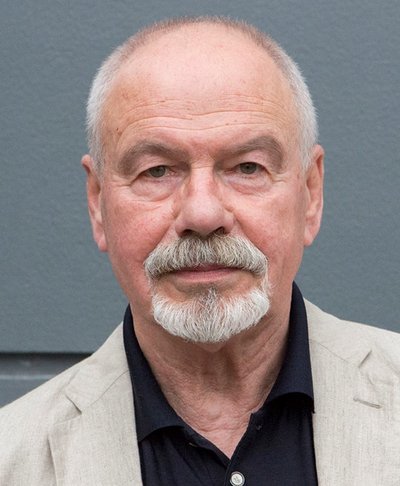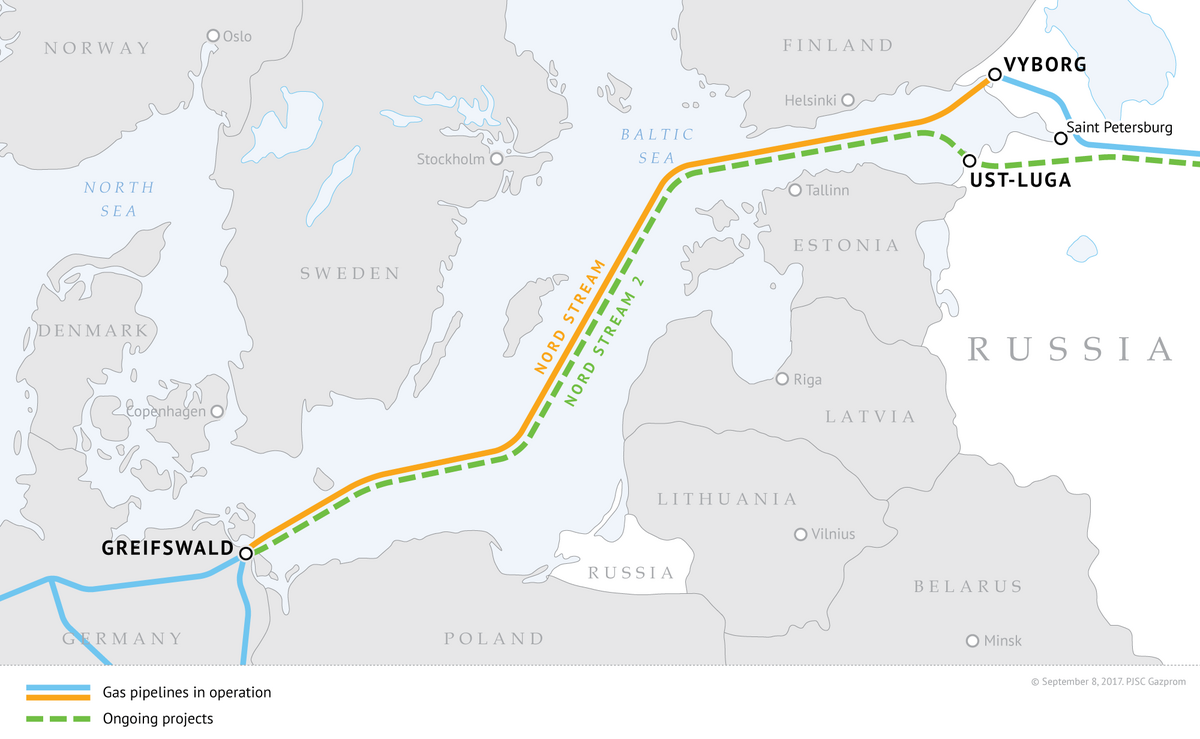Nord Stream 2 and the US sanctions
by Jochen Scholz*, retired Lieutenant Colonel of the German Armed Forces

(picture ma)
From the beginning of the construction works the USA made it clear that they would leave no stone unturned to prevent the second pipeline from Russia through the Baltic Sea to Germany. While in the beginning attempts to exert influence through diplomatic channels or via the media were aimed at members who are in bondage to the US of the EU Commission, the European Parliament and those EU member states whose governments have been spreading the chimera of a Russian threat for years, the US Congress and administration have now tightened the thumbscrews considerably. However, this will only work if those affected do not set crystal-clear limits against the encroachment on their sovereignty.
What is this about? The USA is determined to impose sanctions on companies and individuals involved in the construction and subsequent operation of the pipeline on the basis of Section 232 of the “Countering America’s Adversaries Through Sanctions Act” (https://www.congress.gov/bill/115th-congress/house-bill/3364/text?q). These sanctions are without question contrary to international law because a national law of a state is applied extraterritorially. We have seen this behaviour on the part of the USA over and over again in recent years, as in the case of Iran. Without going into detail at this point: the sanctions imposed could only be effective because of the role of the US dollar in the global financial system. Generally speaking, such action is called extortion.
The German government has publicly forbidden any interference in the business activities of Germany. However, this is not enough to dissuade the USA from its intention to prevent the Nord Stream 2 project. After all, a criminal who demands money from a citizen with a drawn revolver will not be turned away by friendly coaxing. What is at stake here is nothing less than the international legal order created by the Charter of the United Nations after 1945. It is increasingly being replaced by the law of the fist, a development that has already gained momentum since the end of the Soviet Union.
So, what is my advice to the federal government? Under no circumstances should it try to give back as you were given, i.e. to resort to sanctions. For then it fuelled the erosion of international law, which it is currently lamenting. The Charter of the United Nations points the way. Germany is a non-permanent member of the Security Council until the end of the year and held the chair until the end of July. It should take the initiative to apply Article 96 of the Charter:
“Article 96
(1) The General Assembly or the Security Council may request the International Court of Justice to give an advisory opinion on any legal question.
(2) Other organs of the United Nations and specialised agencies, which may at any time be so authorised by the General Assembly, may also request advisory opinions of the Court on legal questions arising within the scope of their activities.”
This would put the issue on the world stage and increase its visibility, whereas at present it is largely debated only in the American and European1 public. This also applies to the probable case that the US would veto the Security Council.
The decisive reason for the obstruction of the USA by its power elite, acting independently of the respective presidency, is geopolitical in nature. Cooperation between Germany and Russia in the energy sector is undoubtedly a building block on the long road to a Eurasian economic area, which would also inevitably entail a new security architecture. This would have meant that the Anglo-American struggle for decades for the “world island”, whose domination, according to Halford Mackinder, is the prerequisite for world dominance.2 Other reasons, such as the sale of the American fracking gas in liquid form to the EU, play a subordinate role and serve President Trump at best as an election campaign issue. In contrast, the pipeline project is important for Russia both in geopolitical terms and, given its economic structure, in economic terms.
In this respect, it would be welcome if Russia, as a permanent member of the Security Council, would consider applying Article 96 of the Charter. •
1 This includes the Russian Federation.
2 https://www.lettre.de/beitrag/mccoy-alfred-w_herzland-und-weltinsel
* Jochen Scholz was a Lieutenant Colonel in the German Armed Forces. As such, he served for several years with NATO in Brussels and afterwards – during the NATO war against Yugoslavia – in the German Ministry of Defence. There he learned that the official speeches of the responsible politicians about blatant human rights violations by Serbia did not correspond with what he could learn from the reports of the experts on the spot. Because of these lies of the politicians he left the SPD in 1999
